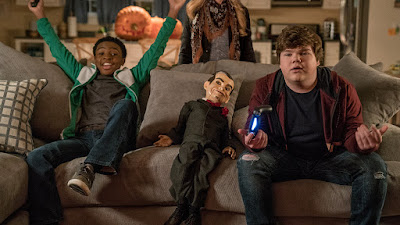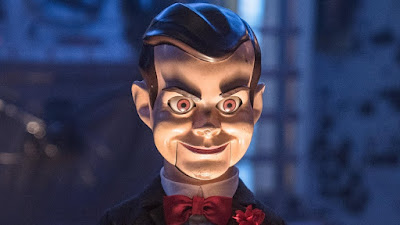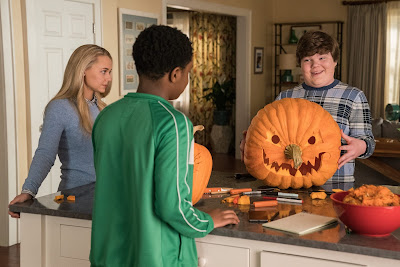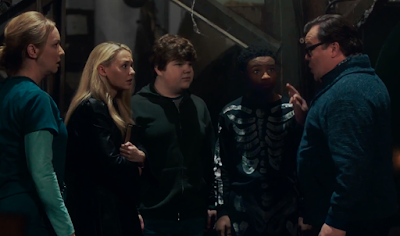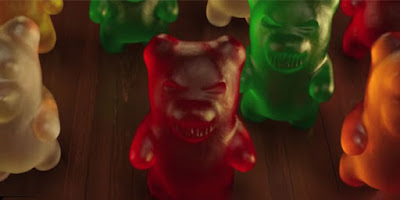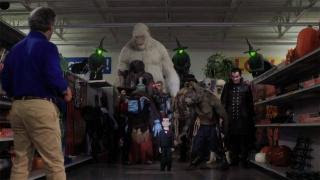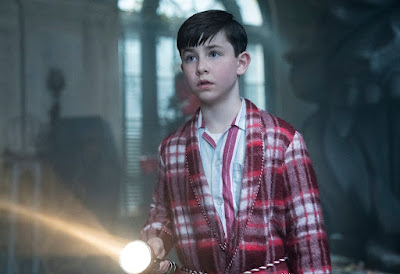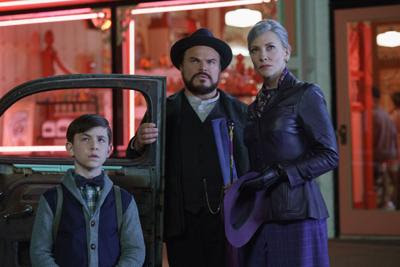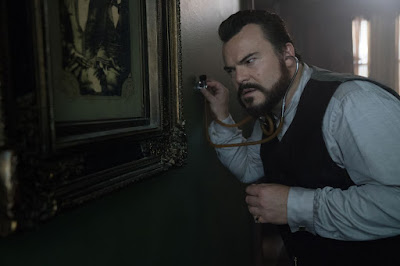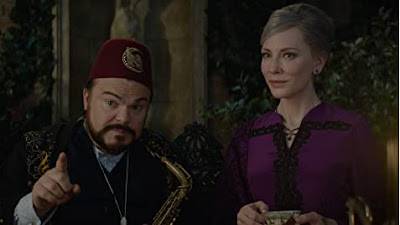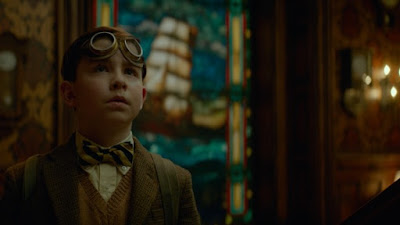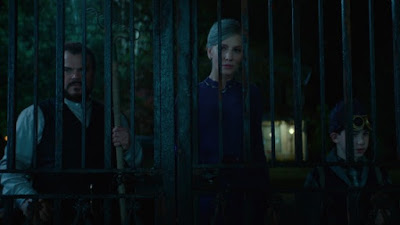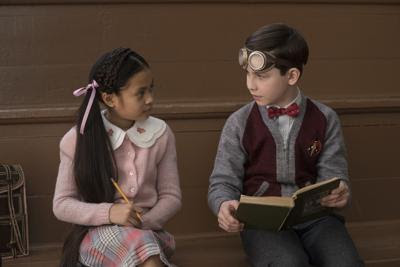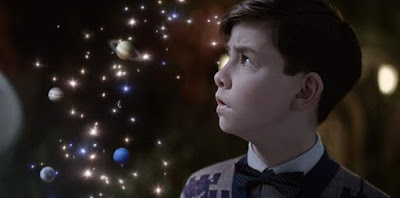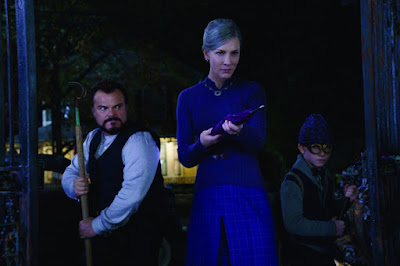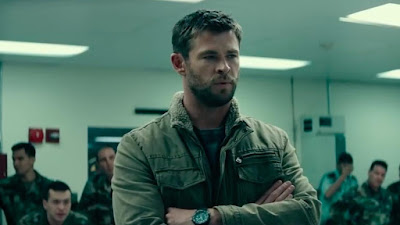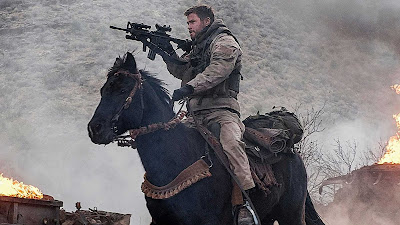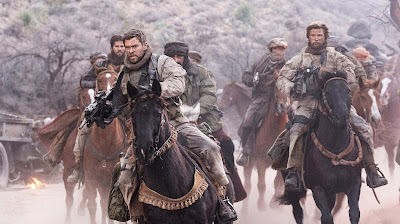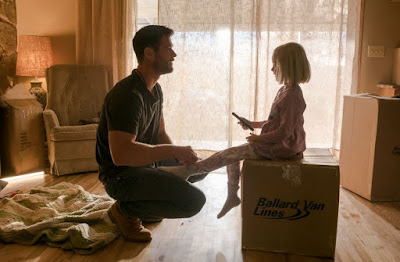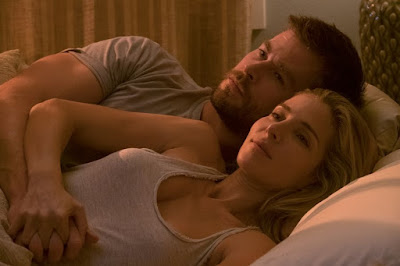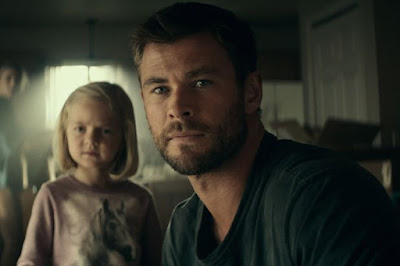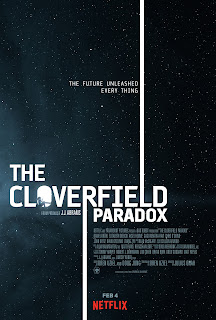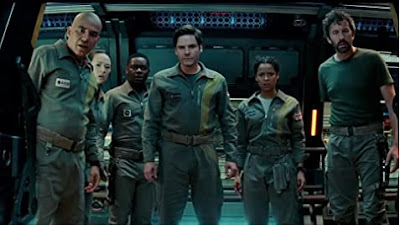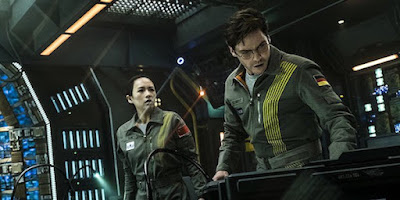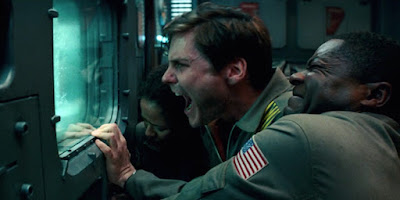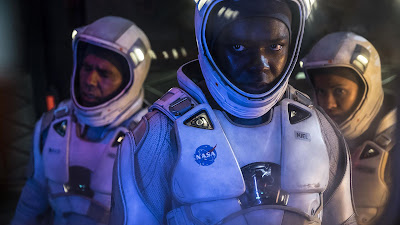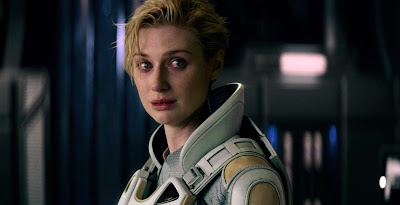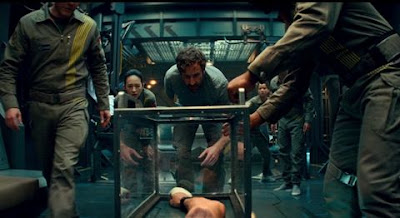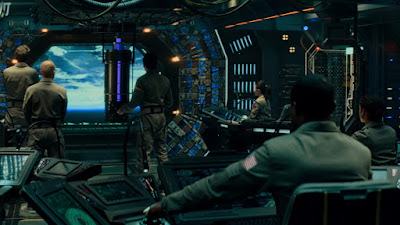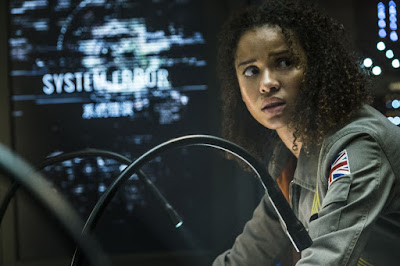For audiences who grew up during the 1990's era, they'll remember the popularity of the Fox Kids
Goosebumps TV show based on a series of bestselling children's horror fiction novels. The demand for a live-action feature film began in 1998 with Tim Burton first attached as director. When a script couldn't be found to determine which exact
Goosebumps book should be adapted, the project was shelved until Columbia Pictures acquired the rights to the series with production beginning on the film in 2014 for a summer 2015 release which proved to be a surprise success both critically and financially. The first
Goosebumps was not only a hit at the box office, but ended up being a faithful feature film version of the hit TV show with both its spirit and fun nature remaining intact. It would be a full three years after its release that audiences would be treated to a second installment with 2018's
Goosebumps 2: Haunted Halloween being released around the same Halloween time frame as its predecessor. However unlike the first
Goosebumps, the sequel received mixed reviews compared to the generally positive reception of the previous film along with it also generating less revenue financially despite still being considered a success. Looking at the actual film itself, one can clearly see why the second Goosebumps
didn't fare as well as its predecessor as it not only isn't as strong of an effort, it also lacks the enthusiasm and energy the first film had which made it connect with audiences and ultimately surprise the way it did.
Based on the sequel to 2015's surprise hit
Goosebumps as well as being based around R.L Stine's best selling book series,
Goosebumps 2: Haunted Halloween centers around three teenagers (Played by Madison Iseman, Jeremy Ray Taylor and Caleel Harris) uncovering a mysterious locked book inside an abandoned house and discover that it's an unfinished tale by a famous author (Played by Jack Black reprising his role from the first smash hit
Goosebumps). Also with the book comes a crazed ventriloquist dummy, who chants magical words which bring Halloween decorations to life and ultimately begin to take over the town along with its giant power generator.
Goosebumps 2: Haunted Halloween feels like what
Ghostbusters ll was to
Ghostbusters. The original 1984 cult
classic
Ghostbusters was surprising in how fresh and innovative it was with blending impressive visuals with strong characters, that the audience cared about with straight-forward storytelling. The second
Ghostbusters while not terrible, was not only less successful than the first film but lacked much of the magic, the energy, and creative drive that made the first film as successful and entertaining as it was. The same issue occurs here with
Goosebumps ll as it lacks the heart and enthusiasm behind making it that the original 2015 surprise hit
Goosebumps possessed. Not to mention the filmmakers take one of the films strongest elements which is Jack Black's character (Whose essentially the Bill Murray of these films), and downgrades him to a basic cameo in a cheap way to connect the two films together. His characters inclusion in the story is the only thing that connects the two movies together as both storylines are vastly different with the second feeling more generic and cliched compared to the previous film. For young viewers, they won't notice much of a difference as the film feels like it aims more towards the younger crowd compared to the first Goosebumps
, which did the same but also aimed for the older fans of the 90's show. Although not a total disappointment and serves as being passable entertainment at best, the sequel
Goosebumps 2: Halloween somehow feels less enthusiastic, and inviting than the 2015 film with less memorable characters the audience doesn't care much for nor will they remember long after watching it. What it does have going for it is the appeal the film carries of being watched around Halloween time as that aspect of it saves it from being a complete and total disaster.
As far as the acting performances go, the young actors in
Goosebumps ll make the most of their roles while attempting to inject some of the charm that its predecessor possessed, though their characters are not as interesting nor as memorable as the ones from
Scary Stories To Tell In The Dark. In terms of acting, Madison Iseman does well as Sarah Quinn, one of the films main protagonists and sister of Sonny Quinn whose played equally well by Jeremy Ray Taylor. Both young actors work well off each other and share chemistry with the same being said for Caleel Harris as Sonny's best friend Sam Carter. The three work well together as a trio and create an atmosphere of believability for both their characters, as well as the story. The rest of the supporting cast does well with Wendi McLendon-Covey as Sonny and Sarah's mother Kathy Quinn, Chris Parnell as the manager of the local pharmacy Walter, who also happens to have a crush on Kathy before being turned into a hunchbacked ogre by a haunted mask, a brief yet fun performance by Ken Jeong as the Quinn's neighbor Mr. Chu, and the return of Jack Black from the first movie in a minimal role as the writer of the
Goosebumps books R.L Stine. Whereas the film itself is brought down from the heights of the previous one due to its screenplay and lack of enthusiasm for its story from the filmmakers, the actors don't add to those issues and genuinely feel as if they're trying to make the most of the characters given to them. While none of the characters come across as feeling memorable, the actors, particularly the young ones try to give the film a
Goonies meets
Scary Stories To Tell In The Dark feel that proves less effective than those films.
The directing by Ari Sandel proves to be serviceable enough to craft a fun tale for young children with a spooky Halloween feel to it, that will not only entertain but also attempt to push them out of their comfort zones. It's not groundbreaking work by any means, but it fits the tone of the story with the films visual flair being the standout of Sandel's work. Here, he manages to bring the Halloween decorations and creatures to life in a fashion that makes them both visually appealing as well as looking striking. Sandel also gives the film an atmosphere that feels both fun and cheesy as he presents the characters in a way which makes them experience a
Goosebumps story throughout the course of the film. The films CGI proves to be decent for the most part with the monsters looking fairly realistic as well as appearing creepy. The films pacing keeps the story moving to where it doesn't feel as if its moving too fast nor too slow. What Ari Sandel succeeds at is creating an atmosphere which feels appropriate for a PG adventure/comedy that aims at a young audience. The film has the feel of classic 90's children horror movies, and encourages the audience watching it to tap into their youth side if they happen to be an older fan. The main difference between this film and the previous one is the 2015
Goosebumps can be watched by both young and older fans while being enjoyed just the same. As hard as Ari Sandel tries with handling the film, there's a specific tone that the first film had that's largely absent here which makes it less impressive and more predictable. Unlike the original film, this one doesn't stick with you as well days after watching it unfortunately.

The films script by Rob Lieber proves to be significantly disappointing as the work here doesn't equal the effort put into the first film both in terms of storytelling as well as character development. Both movies virtually have almost nothing in common besides the inclusion of Jack Black's character to bridge the two stories together, but it especially doesn't help that the second film essentially ignores the plot and characters that were so well established in the previous movie. The sequel chooses to opt for a completely different arc while centering the timeline of its story around Halloween, automatically making it less effective than the first film in regards to rewatchability. The audience never gets to discover what happened at the end of the first movie with the young male character writing a new book. Rather than strengthening the audience connection with the characters established in the first
Goosebumps film, the sequel hands them newer characters who feel even more like generic tropes in a kids movie like this while managing to make them appear less interesting. How many times does the audience need to see a subplot involving a snotty and self-absorbed older sibling being forced to babysit their younger sibling and his friend much to her disapproval, while fantasizing over a classmate at school whose secretly seeing someone else? The subplot involving the freakish doll also feels like a watered down kids version of
Child's Play, particularly when the doll begins to perform acts of violence and mayhem in obsessing over his owners (The scene involving the doll and Sarah's cheating boyfriend on the ladder for example). Another familiar cliche is the young kids all trying to convince an adult figure that the spooky things they're witnessing are real much to their disbelief with Sarah and Sonny's mother being a prime example. Her character feels like the generic parent in these type of films where they're supposed to disbelieve everything until the third act when they either witness or see the events for themselves except by then its too late. The script largely feels like a combination of previously used subplots and cliches that have become standard with these types of children's films, further strengthening the case that there's a severe lack of creative drive and originality with the writing of the film in comparison to the first. Although the young characters aren't terrible, they also aren't as well-developed and charismatic as the ones in Stephen Kings
IT film series or
Scary Stories To Tell In The Dark. The young characters there were likable because they had very distinct personalities, that make them feel lively and presented someone that every type of audience member could connect with. Unlike the young kids here, the audience cared about those individuals and wanted them to succeed in their mission without getting harmed. The sequel ultimately feels as if a sizable chunk of the effort, that was put into the first
Goosebumps is missing here. The biggest shame with the new film is not that it doesn't give the audience compelling enough characters nor brushes aside the ones from the previous film for no legitimate reason, its how deliberately it feels in wanting to separate itself from its predecessor with wanting to be it's own film, even going as far as sidelining what's arguably the strongest character of both films played by Jack Black. When his character does show up, it comes across as feeling too little too late as he's not able to do anything to really help the main characters. Not to mention the audience never finds out what happened to his daughter from the first film as she's not mentioned here.
For those who went into the
previous Goosebumps with minimal expectations and came out legitimately surprised by it, they're bound to find major disappointment in
Goosebumps ll as it feels like a significant step down from that film in regards to both character development and story. What the film has going for it that makes it watchable at the very least compared to just being outright terrible, is the stories bizarre nature of its plot along with the Halloween atmosphere being cemented into its plot. For younger audiences, there's enough of those elements to make the film a somewhat worthwhile experience for them to watch. However, no one is going to come out of this film remembering the characters by heart nor particularly caring about them afterwards. The sequel overall, misses a really good opportunity to take both the story as well as the characters previously established in the first film and expand on them here with Black's character being more central to the plot. That would've been a much wiser and better choice as the film is so different from its predecessor and forces itself to be, that it almost is undeserving of being labeled
Goosebumps 2. Fans who grew up enjoying the 90's TV show while reading the series of books deserve a stronger and more consistent story, that's less frustrating and a more satisfying rather than being a painfully mediocre effort. Hopefully if a third film is greenlighted, the filmmakers go back to the basics and find a stronger story with more appealing characters and placing Jack Black back in the center of the plot.
Final Verdict: For fans of the 90's Fox TV show as well as the books and 2015 movie,
Goosebumps 2: Halloween is a major disappointment for those who found the last film a genuine surprise. For the brand name alone, it's only worth watching once then immediately disregard.

